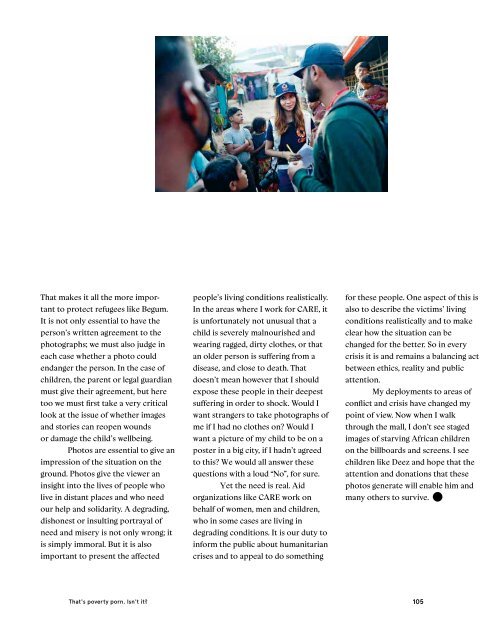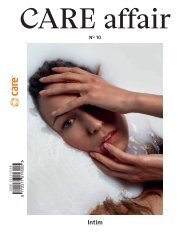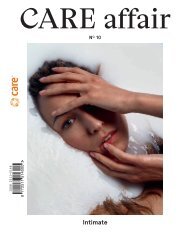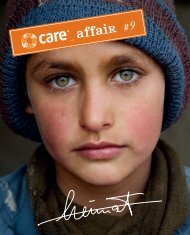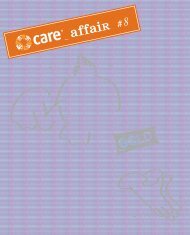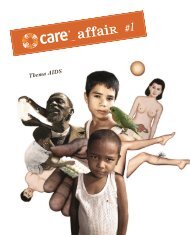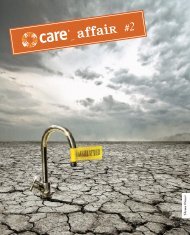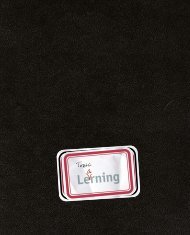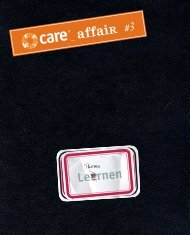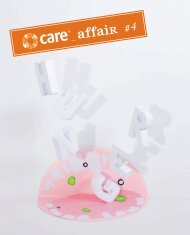CARE Affair #11 - Power
You also want an ePaper? Increase the reach of your titles
YUMPU automatically turns print PDFs into web optimized ePapers that Google loves.
That makes it all the more important<br />
to protect refugees like Begum.<br />
It is not only essential to have the<br />
person’s written agreement to the<br />
photographs; we must also judge in<br />
each case whether a photo could<br />
endanger the person. In the case of<br />
children, the parent or legal guardian<br />
must give their agreement, but here<br />
too we must first take a very critical<br />
look at the issue of whether images<br />
and stories can reopen wounds<br />
or damage the child’s wellbeing.<br />
Photos are essential to give an<br />
impression of the situation on the<br />
ground. Photos give the viewer an<br />
insight into the lives of people who<br />
live in distant places and who need<br />
our help and solidarity. A degrading,<br />
dishonest or insulting portrayal of<br />
need and misery is not only wrong; it<br />
is simply immoral. But it is also<br />
important to present the affected<br />
people’s living conditions realistically.<br />
In the areas where I work for <strong>CARE</strong>, it<br />
is unfortunately not unusual that a<br />
child is severely malnourished and<br />
wearing ragged, dirty clothes, or that<br />
an older person is suffering from a<br />
disease, and close to death. That<br />
doesn’t mean however that I should<br />
expose these people in their deepest<br />
suffering in order to shock. Would I<br />
want strangers to take photographs of<br />
me if I had no clothes on? Would I<br />
want a picture of my child to be on a<br />
poster in a big city, if I hadn’t agreed<br />
to this? We would all answer these<br />
questions with a loud “No”, for sure.<br />
Yet the need is real. Aid<br />
organizations like <strong>CARE</strong> work on<br />
behalf of women, men and children,<br />
who in some cases are living in<br />
degrading conditions. It is our duty to<br />
inform the public about humanitarian<br />
crises and to appeal to do something<br />
for these people. One aspect of this is<br />
also to describe the victims’ living<br />
conditions realistically and to make<br />
clear how the situation can be<br />
changed for the better. So in every<br />
crisis it is and remains a balancing act<br />
between ethics, reality and public<br />
attention.<br />
My deployments to areas of<br />
conflict and crisis have changed my<br />
point of view. Now when I walk<br />
through the mall, I don’t see staged<br />
images of starving African children<br />
on the billboards and screens. I see<br />
children like Deez and hope that the<br />
attention and donations that these<br />
photos generate will enable him and<br />
many others to survive.<br />
That’s poverty porn. Isn’t it?<br />
105


